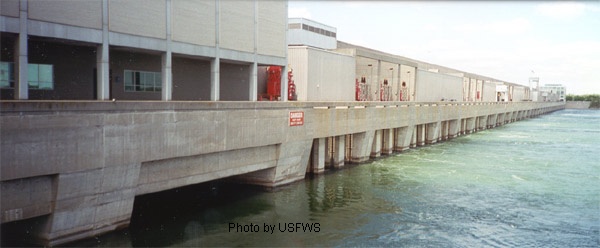As a result of a surplus of power allocations from the Moses-Saunders power dam, a Potsdam paper company is expanding its business, creating 22 new jobs for the area.
The Moses-Saunders power dam is a hydroelectric dam located on the St. Lawrence River in Massena, NY. According to the New York Power Authority, the 3,600 foot long dam has been accumulating hydroelectricity since 1958. The NYPA has been compensating New York State by giving power to St. Lawrence County businesses to reduce their electricity bills.
These power allocations have been serving the North Country since the creation of the dam. However, the creation of the Northern New York Power Proceeds Allocation Fund in 2014 has allowed for the county to actually sell the unused power, an economic boon for the county businesses and companies.
These cash incentives created from the selling of otherwise-wasted power are finally benefitting St. Lawrence County, which, according to NCPR, had to give up valuable land along the St. Lawrence River for the creation of the dam in 1958.
According to NCPR, $2 million has already been handed out in the form of grants for which local businesses can apply. Potsdam Specialty Papers is still benefitting from the hydropower that reduces its energy bills. Because of this reduction, the company is expanding production and hiring 22 new staff members.
The St. Lawrence River, which carries water from all of the Great Lakes to the Atlantic Ocean, is an extremely valuable energy resource. According to the NYPA, water enters the Moses-Saunders dam, drops about 80 feet, and turns a turbine that spins copper wires, creating a current of electricity. This electricity is clean and renewable. Despite the changes to the physical river and surrounding environment, the US Energy Administration claims that dams last a long time and support an economic system with stable jobs and no health effects on workers or surrounding communities.
According to the US Energy Information Administration, hydropower is the most abundant source of renewable energy in the United States, accounting for almost half of all renewables. However, at only 6% of all energy generated in the country, it still barely compares to fossil fuels like coal and natural gas, which make up 66% of all US-generated energy.



